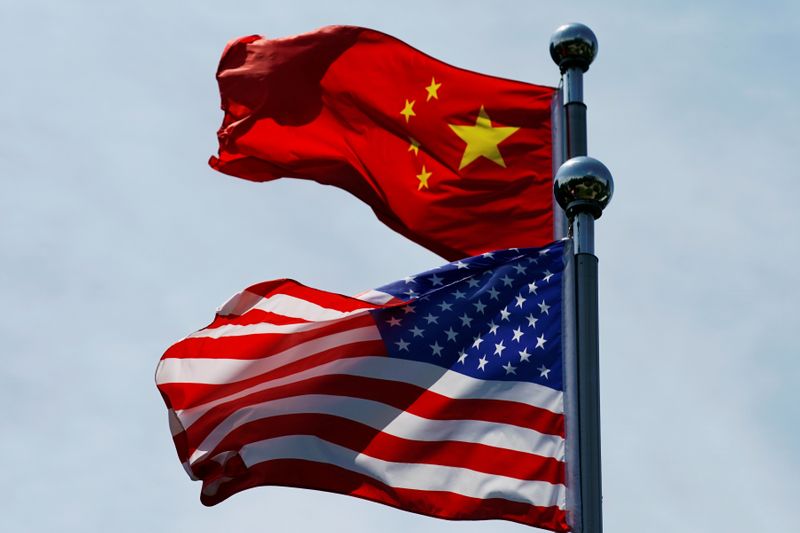By Humeyra Pamuk
(Reuters) - More than 100 U.S. diplomats and family members flew to China on Wednesday, according to internal State Department emails, as Washington pressed ahead with its plan to restaff its diplomatic mission amid heightened bilateral tensions.
A chartered commercial aircraft left Dulles airport outside Washington for the South Korean capital, Seoul, where passengers would transfer to another aircraft outfitted for medical operations before flying to the Chinese city of Guangzhou.
The flight, only the second of many required to return more than 1,200 U.S. diplomats with their families, was the first since negotiations hit an impasse two weeks ago over conditions China wanted to impose on the Americans, prompting the State Department to postpone flights tentatively scheduled for the first 10 days of July.
The U.S. is working to fully restaff its mission in China, one of its largest in the world, which was evacuated in February because of COVID-19. A Department email dated Wednesday and viewed by Reuters said more flights were being arranged.
"For those still waiting to return, we are in the process of getting approvals from the Department for subsequent flights to Guangzhou, Shanghai, and Tianjin/Beijing in the coming weeks. Due to PRC regulations, these flights will be limited to a maximum of 120 passengers," it said.
Bilateral relations have deteriorated to their lowest level in decades over issues including China's handling of the coronavirus pandemic, bilateral trade and a new security law for Hong Kong.
Washington and Beijing have been negotiating for weeks over the terms of how to bring U.S. diplomats back and the top issues of disagreement have been testing and quarantine procedures as well the frequency of flights and how many one journey can bring back.
The U.S. state department told Reuters it "continues to work towards the safe and secure return of all our diplomatic personnel to China in a manner consistent with the standards for diplomatic inviolability enshrined in the Vienna Convention on Diplomatic Relations."
The State Department internally told its staff it received assurances from Beijing that parents would not be separated from their children if they tested positive.
But disagreements over other issues, such as testing being conducted in Chinese labs, have persisted.

Diplomats say agreeing to be tested contravenes the 1961 Vienna Convention on Diplomatic Relations. The internal email said that on arrival in China, adults and children of all ages should be prepared to be tested for COVID-19.